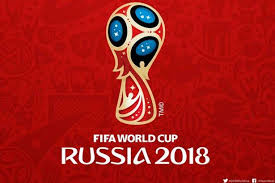Let’s be clear: the McLaren Investigation Report, the second part of which was unveiled in London last week, poses no threat to Russia’s World Cup.
Even if the “evidentiary summaries” that have been drawn up and are being sent out to international sports federations lead eventually to Russian footballers getting doping bans, far too much is at stake financially and politically for the consequences of the “institutional conspiracy” uncovered by McLaren to include removal of football’s most glittering prize.
Though Professor McLaren and his colleagues have assembled a pretty convincing body of evidence to back up the allegation of a “systematic and centralized cover-up and manipulation of the doping control process”, boosting football performance is unlikely to have been that high a priority in the 2011-15 period under scrutiny, under the grandiose national pride-through-sport project on which Russia appears to have embarked during the Putin years.
Even if it was, and even if the bleak picture delineated by McLaren turns out to be accurate in all important respects, football is not one of those sports in which the performance boost associated with doping can almost guarantee victory.
For the record, Russian Olympic Committee President Alexander Zhukov has told official news agency TASS that “no system of state support for doping in Russia has ever existed or exists,” while the country’s new sports minister Pavel Kolobkov has sought to pin blame for the scandal on Grigory Rodchenkov, the former Moscow lab director whose allegations triggered Professor McLaren’s appointment.
This does not mean that there is nothing for Gianni Infantino to worry about, as we edge towards FIFA Presidential election year in 2019. This is even though the McLaren report could easily lead to Russia having the world’s most effective anti-doping apparatus in place by the time Planet Football shows up on its doorstep in the summer of 2018.
As I see it, the potential problem now looming for FIFA is that an accident of timing could leave it out of kilter with most of the rest of sport, which left itself overexposed to Russia during a golden half-decade of international events, but which may now be girding itself to give the country the cold shoulder in McLaren’s wake.
The Winter Olympics and Paralympics; the Universiade, its own Formula One grand prix; world championships in athletics, aquatics, ice-hockey, judo and fencing (twice): Russia hosted a remarkable succession of major sports events between 2013 and 2016.
While all this was happening, the movers and shakers of international sport, headed by the International Olympic Committee (IOC), had little choice but to regard and treat Vladimir Putin and his compatriots as their partners and allies.
Now, as a consequence of the extraordinary allegations made by McLaren surrounding activity inside the Sochi anti-doping laboratory – and if you haven’t read his second report, I would urge you to do so – you would think that the possibility must have occurred to IOC President Thomas Bach and colleagues that maybe, just maybe, they were being strung along, spun a yarn, used.
If that particular kopek has indeed dropped, then it would appear natural to conclude that relations between much of the sports movement and the Kremlin are poised to get distinctly cooler, not to say frosty. One obvious casualty could be any short- to medium-term prospect of another Russian bid for the Summer Olympics.
Infantino, though, faces a further 18 months with Russia entrenched as FIFA’s most important business partner. Should relations between the Kremlin and the EU/Western Europe continue to deteriorate during this time, the football body’s position may become increasingly uncomfortable.
Such tensions might, of course, have a knock-on effect on commerce, eating into, for example, expected ticket sales to West European fans – even if I very much doubt that the state of east-west relations will have any bearing on income from broadcasting rights for the tournament, FIFA’s most important revenue stream of all.
Then again, while FIFA may be out of kilter regarding Russia with other sporting bodies, the populist, nationalistic political zeitgeist might work in its favour.
If relations between Putin and United States President-elect Donald Trump turn out to be anything like as cordial as many expect, then it might be Western Europe, not Russia, that ends up looking isolated. Infantino, remember, has also laid the groundwork for a fruitful relationship with the emergent football powerhouse of China.
In six months’ time, on June 17, Russia take on New Zealand in Saint Petersburg in the opening match of the Confederations Cup, in an occasion sure to be accompanied by much pomp and pageantry. It will be fascinating – and perhaps more than a little disconcerting – to watch how the sporting and political landscape changes between now and then,
David Owen worked for 20 years for the Financial Times in the United States, Canada, France and the UK. He ended his FT career as sports editor after the 2006 World Cup and is now freelancing, including covering the 2008 Beijing Olympics, the 2010 World Cup and London 2012. Owen’s Twitter feed can be accessed at www.twitter.com/dodo938.

